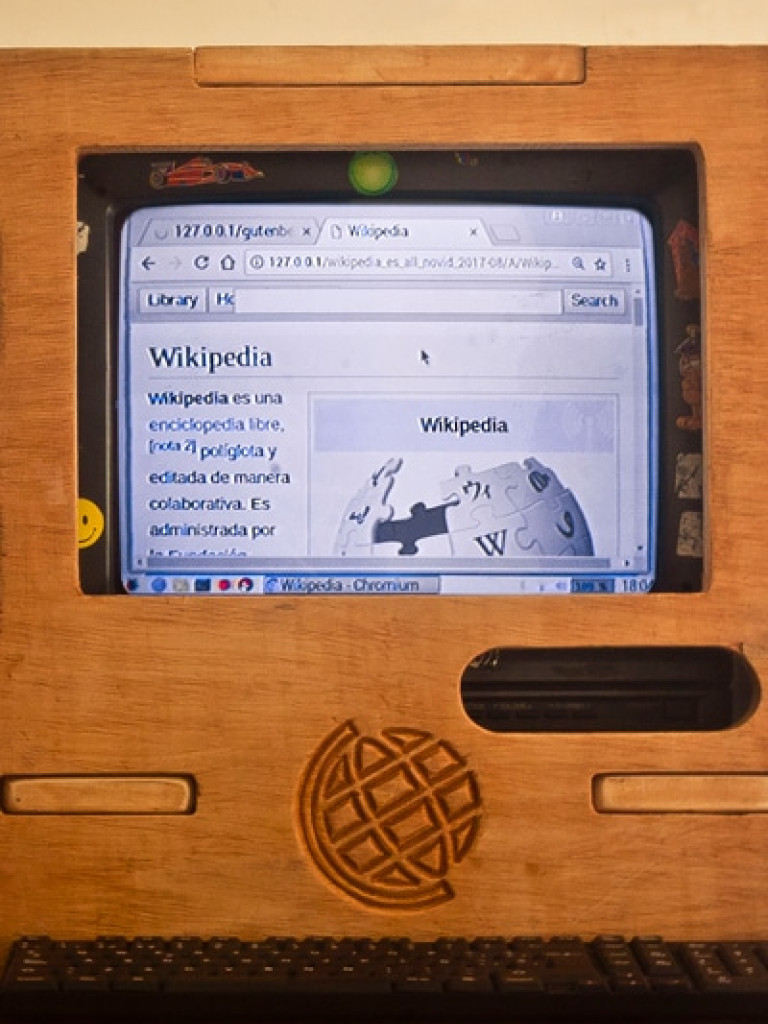
OfflinePedia
The strongest source of free encyclopaedic knowledge is Wikipedia, which currently contains about 6.458.000 articles in English. At the same time, the switch from analogue to digital TV signals and the development of flat screens have made myriads of tube TVs obsolete. A smart combination of these devices can help bridge the digital divide at low cost. A Raspberry Pi, a single-board computer, and an old TV make a low-cost Linux-based PC. The free software Kiwix allows downloading offline versions of valuable sources such as Wikipedia, around 60.000 free ebooks, PHeT science simulations, and so on. This combination creates OfflinePedia: open-source computers built out of TVs and packed with academic content, enabling vulnerable populations to access knowledge. Because the hardware and software components are free, they can be easily replicated and shared. Potentially reusable e-waste is everywhere and can be brought back to life with the right open source tools. It is more than a computer, it has transformed into a non-profit initiative by volunteers that allows knowledge to be freely disseminated/donated without the need for a high budget or a full telecommunications infrastructure. In this way, it complements science communication activities in rural areas where people want to learn but do not have the resources.